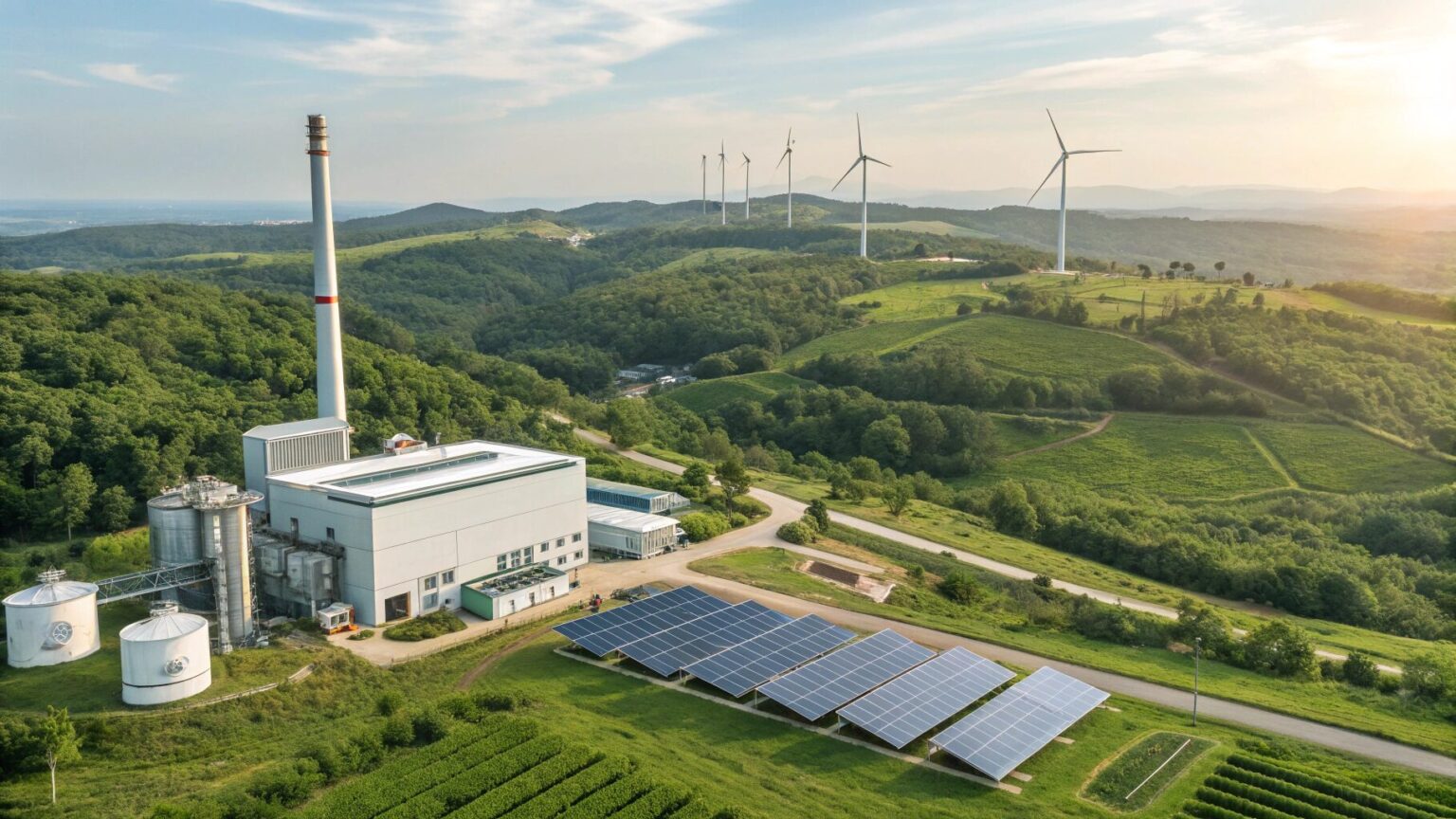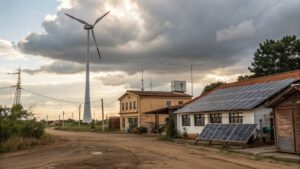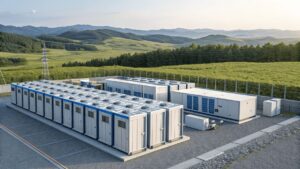[Column]Legal and Business Implications of Indonesia’s Latest Energy Policies — Transformative Trends in Waste-to-Energy Regulation and National Energy Policy

✅ Executive Summary
🔋 Indonesia issues two landmark energy regulations in October 2025 — waste-to-energy and cross-border power trading take center stage
📋 Presidential Regulation No. 109 redefines waste-to-energy (WtE), establishing unified PLN power purchase rates
⚖️ Government Regulation No. 40 enables cross-border power trading, providing legal basis for renewable energy exports to Singapore
🏢 Significant implications for Japanese enterprises — investment schemes, permitting frameworks, and contractual structures require reassessment
Introduction
This column addresses Indonesia’s most recent energy-related regulations.
In October 2025, the Indonesian government issued two critical energy regulations in succession. The first is Presidential Regulation No. 109/2025 (PR 109/2025) concerning waste-to-energy (WtE), and the second is Government Regulation No. 40/2025 (GR 40/2025), which establishes the national energy policy framework.
These regulations reflect the broader energy transition and decarbonization trends across the ASEAN region. They represent developments that Japanese enterprises engaged in renewable energy and circular economy sectors cannot afford to overlook.
Indonesia ranks as the largest economy in ASEAN with a population of approximately 270 million and serves as a major investment destination for Japanese corporations. Given the region’s heightened investment appetite, particularly in renewable energy and infrastructure sectors, examining these regulations from a legal perspective and analyzing practical considerations merits careful consideration.
Background of Indonesia’s Energy Policy
Indonesia, as ASEAN’s most populous and economically largest nation, faces rapidly growing energy demand. Simultaneously, waste management challenges in urban centers have intensified, giving rise to concerns regarding environmental pollution and public health impacts.
The Indonesian government has established a target of achieving carbon neutrality by 2060, making renewable energy expansion a policy priority. Against this backdrop, the development of mechanisms to harness waste as a renewable energy source and the promotion of renewable energy exports through cross-border power trading represent the principal focus of the current regulatory amendments.
Presidential Regulation No. 109 — Modernization of Waste-to-Energy Regulation
Comparison with Previous Regulatory Framework
PR 109/2025 amends Presidential Regulation No. 35/2018 (PR 35/2018). Notably, the new regulation explicitly acknowledges that the previous framework was “not functioning effectively”—a significant indicator that warrants close attention.
This acknowledgment reflects the government’s recognition that structural deficiencies existed in prior policy design and signals a strong commitment to establishing a more effective regulatory framework.
Key Provisions and Practical Business Implications
The principal elements of PR 109/2025 are as follows:
Scope of Waste-to-Energy Activities
The regulation defines waste-to-energy processing (PSE: Pengolahan Sampah menjadi Energi) utilizing environmentally responsible technology, establishing four categories:
– Waste-to-electricity (PSEL)
– Biomass and biogas conversion
– Renewable fuel production
– Other value-added product generation
The current regulation focuses primarily on PSEL (waste-to-electricity conversion), with the remaining three categories to be elaborated through implementing regulations by the Ministry of Energy and Mineral Resources (MEMR) at a future date. This phased approach reflects the government’s intention to prioritize proven electrification technologies before expanding to alternative methodologies.
Eligibility Requirements for Host Municipalities
Municipalities hosting PSEL projects must satisfy the following requirements:
– Daily waste supply capacity of at least 1,000 metric tons
– Allocation of local budget (APBD) resources for waste collection and transportation
– Provision of cost-free land throughout the construction and operational phases
– Enactment of local ordinances governing sanitation service charges
These requirements function as preconditions guaranteeing project sustainability. Particularly stringent are the provisions for cost-free land provision and budget allocation, which impose substantial fiscal burdens on host municipalities. In practice, careful evaluation during the municipal selection phase proves essential.
Role of State-Owned Enterprises and PLN’s Purchase Obligation
State-owned enterprises (BUMN) operating under BPI Danantara (Indonesia Investment Management Authority) assume responsibility for selecting and funding PSEL project operators (BUPP PSEL). State electricity company PT PLN incurs an obligation to purchase electricity generated by PSEL facilities.
While competitive bidding previously served as the default mechanism, PR 109/2025 permits direct designation in specified circumstances—such as situations where only a single bidder participates or when the Environmental Minister declares a waste emergency. This flexibility facilitates accelerated project deployment; however, transparency and competition considerations warrant ongoing attention.
Unified Power Purchase Pricing
The most significant modification concerns the establishment of a uniform power purchase rate of $0.20 per kilowatt-hour (kWh) across all capacity levels.
Under the previous PR 35/2018, projects of 20 MW or less received $0.1335/kWh, while projects exceeding 20 MW operated under progressive calculation formulas. The revised regulation substantially simplifies the pricing structure.
For project developers, this unified tariff facilitates revenue forecasting; however, large-scale operators may find this arrangement disadvantageous relative to previous terms. Additionally, MEMR retains authority to adjust rates under specified circumstances. Consideration of future price adjustment risk proves essential—particularly given Indonesia’s characteristic tendency for such risks to materialize in practice.
Transition Provisions
For existing PSEL projects where designated bidders, cooperation agreements, or power purchase agreements (PPAs) have been concluded, application of the previous PR 35/2018 shall continue.
However, should technical infeasibility or failure to achieve waste reduction targets become evident, project participants may mutually agree to transition under the new regulatory framework. These transition provisions balance protection of existing operators’ established interests while incentivizing performance improvement through migration to the revised system.
Government Regulation No. 40 — National Energy Policy and Cross-Border Power Trading
Legal Framework for Cross-Border Power Trading
GR 40/2025 amends Government Regulation No. 79/2014, establishing a comprehensive regulatory framework governing Indonesia’s long-term energy strategy.
Particularly noteworthy is the provision of an explicit legal foundation for cross-border power trading—the first such codification in Indonesian law. Principal provisions include the following:
Aggregation Structure for Cross-Border Power Trading
Cross-border power transactions must be conducted exclusively through PT PLN or entities designated by the government.
Direct transactions between private power generators and foreign consumers are, in principle, prohibited. The operative structure requires private generators to sell electricity to PLN or a designated entity, which then manages import/export operations. This aggregation framework reflects the government’s emphasis on state management of energy security; nevertheless, private sector stakeholders have raised concerns regarding market access restrictions and potential competition distortion.
Single-Window Policy (Porte Monnaie Policy)
Export and import activities involving coal, natural gas, biofuels, and electricity shall be conducted through an integrated single-window service (PTSP) system.
This consolidated permitting process aims to streamline administrative procedures while strengthening compliance oversight.
Standards for Cross-Border Trade
Cross-border electricity exports may be conducted to enhance efficiency and strengthen supply security. The operative principle prioritizes domestic demand fulfillment, with surplus generation directed toward export markets to generate economic value.
Electricity imports are similarly permitted for analogous purposes, with particular application envisioned for regions with insufficient domestic infrastructure—notably border areas.
Swap Transactions
GR 40/2025 authorizes energy resource swap transactions. Arrangements permitting electricity exchange for alternative energy resources or commodities are likewise permitted, accommodating commercial flexibility.
PLN’s Monopolistic Position and Practical Challenges
The enactment of GR 40/2025 provides critical legal foundation for renewable energy exports from Indonesia to Singapore, representing a significant policy advance.
Singapore has established a target of sourcing 30 percent of its electricity from low-carbon power generated outside its territory by 2035, positioning Indonesia as a strategically important supply source.
From a practical standpoint, however, substantial challenges remain unresolved. PLN’s function as the sole power export aggregator creates complete dependence of private power generators on PLN for market access. In practical implementation, issues including price negotiating power, contract term transparency, and competitive environment assurance require clarification through future implementing regulations and operational procedures.
Furthermore, GR 40/2025 articulates high-level policy directives, with detailed implementing provisions delegated to subordinate regulations—a characteristic pattern in Indonesian regulatory design. As infrastructure-related enterprises require substantial capital investment to operationalize, exercising prudent investment judgment warrants postponing investment decisions pending development of permitting procedures, technical standards, and contract templates at the operational level.
Practical Implications for Japanese Enterprises
These new regulatory frameworks generate the following practical implications for Japanese enterprises developing renewable energy and infrastructure projects in Indonesia:
Reassessment of Investment Schemes
Enterprises contemplating entry into waste-to-energy activities must structure investment schemes premised upon municipal eligibility requirements and mandatory cooperation with BUMN entities.
Particularly critical are preliminary consultations with host municipalities and legal assurances regarding cost-free land provision and waste supply certainty.
Careful Contract Structuring
The establishment of unified power purchase rates necessitates reconstruction of financial models in certain instances.
Additionally, MEMR’s authority to revise tariffs, risk allocation provisions concerning shortfalls in contracted waste supply, and related contractual provisions warrant meticulous evaluation from a risk allocation perspective.
Engagement with Cross-Border Power Business Opportunities
Enterprises interested in cross-border power commerce—such as electricity exports to Singapore—must prioritize relationship development with PLN.
In export schemes utilizing PLN as intermediary, preliminary organization of contract negotiation issues proves essential, including pricing mechanisms, risk allocation frameworks, and dispute resolution procedures.
Understanding Permitting Processes
Implementation of the single-window policy through the PTSP system is anticipated to consolidate permitting procedures; however, commencement of practical operations will likely require considerable time.
Continuous monitoring of applicable implementing regulations and engagement of local expert support as necessary represent appropriate risk management approaches.
Conclusion
Indonesia’s Presidential Regulation No. 109 and Government Regulation No. 40, both enacted in October 2025, represent important turning points in the nation’s energy policy trajectory.
Modernization of waste-to-energy regulations establishes a practical framework promoting simultaneous advancement of environmental protection and renewable energy adoption. Codification of cross-border power trading constitutes a significant step toward regional energy integration within ASEAN.
Concurrently, material practical obstacles persist, including PLN’s monopolistic positioning, opacity in price-setting mechanisms, and incomplete implementing regulations. Japanese enterprises seeking to capitalize on business opportunities through these revised regulatory frameworks should conduct rigorous due diligence across legal, financial, and technical dimensions and maintain intensive communication with local authorities and business partners.
Ongoing attention to developments in Indonesian energy regulation will prove indispensable in the period ahead.



